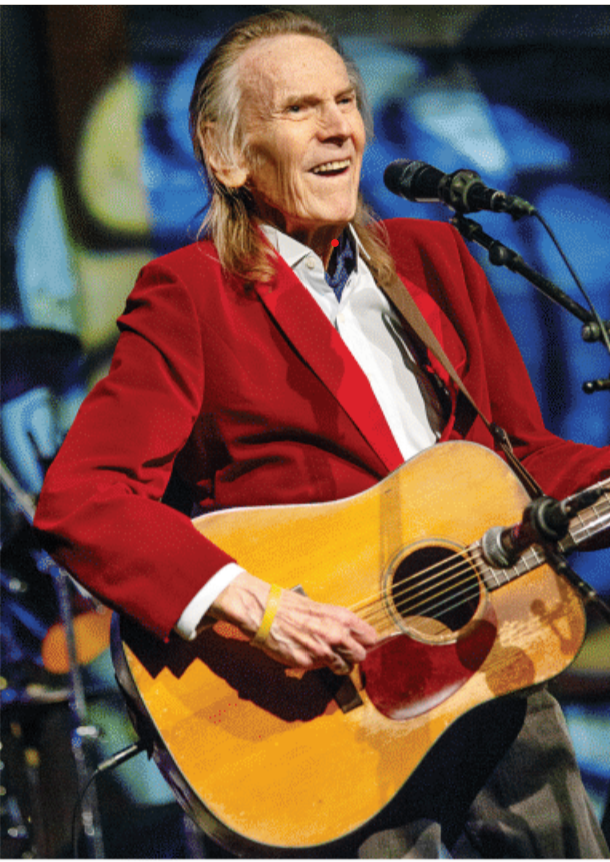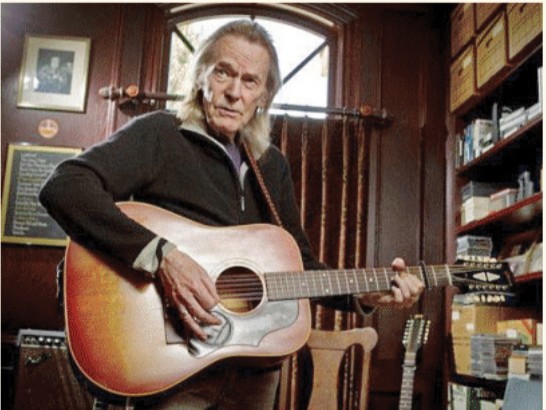
Local Music Spotlight
Gordon Lightfoot’s music meant so much to me for so many decades, from the time I first heard "Early Morning Rain" back in 1965. In the wake of his recent tour cancellations, it was as if the media were dusting off their prepared obituaries and tributes and updating them, sensing that his time was near. He passed away on May 1, 2023.
I have often said that Canada's greatest contribution to popular music over the last 60 years or so has been singer-songwriters. While we have had significant musical contributors in a variety of music genres, beginning in the 1960s, Canadian singer-songwriters have come to define Canadian music to the world. Lightfoot was at the top of the heap, followed by the likes of Joni Mitchell, Ian Tyson, Neil Young, Robbie Robertson, Bruce Cockburn, Leonard Cohen and more. Unlike their American counterparts, Canadian singer-songwriters did not write of civil rights or political protest. They wrote about this country and their love for their homeland as well as the nature of relationships, love, and loss. And they all did so with a distinctive poetic gift.
I remember the first time I heard Lightfoot's epic masterpiece "The Canadian Railroad Trilogy" in 1967, I had to find a dictionary to look up what “verdant” meant. It was the perfect descriptor of early Canada and Lightfoot instinctively knew that.

Club
Although composed two years apart, Ian Tyson’s “Four Strong Winds” and Lightfoot’s “Early Morning Rain” both address the post-modern plight of urban alienation and the desire to get back to a simpler life. Whereas Ian’s lament is for a lost love out west, Gordon’s lyrics reflect the loneliness of the working man relocated from a rural environment and his loved ones and longing to return. The changes in technology are also reflected in the two songs: Ian writes of sending down “the fare” implying a train ticket, and the imagery of the railroad opening up the west a century earlier. Gordon’s character watches as the plane he should be on takes off in the dampness of an early morning. “You can’t jump a jet plane like you can a freight train” is perhaps one of the most evocative lines in Canadian songwriting and says much about the changing nature of our post-war, urban society and the sense of dislocation that many often felt.
For my book Four Strong Winds: Ian & Sylvia, I had the distinct pleasure and honour of spending an evening with Gordon Lightfoot at his home in Toronto. He was most gracious in his invitation to me and most welcoming to me in his home. It was an evening indelibly imprinted in my memory forever.

Lightfoot lived in the toney neighbourhood called The Bridal Path. The Bridal Path is the home of the nouveau riche with monolithic modern angular stone houses, the bigger the better to show off one’s recent wealth and status. His ostentatious-looking mansion, with semi-circular driveway, reminded me of The Clampetts’ Beverly Hills mansion on The Beverly Hillbillies. But as I made my way up the driveway, a rustic down-home charm appeared in the form of a well-worn, frayed lawn chair, the kind my parents’ generation used, consisting of coloured plastic lattices woven between an aluminum frame, on the front door stoop. I could picture Gordon enjoying the sunshine pondering life or working through some new lyric ideas, while watching the Porsches and BMWs go by.
I rang the doorbell and was greeted by the man himself. If Ian & Sylvia, Burton Cummings, Randy Bachman, Anne Murray, and Neil Young are Canadian music royalty, Gordon Lightfoot is the grand poohbah of the lot, the sovereign. He is a living legend. There he stood, slightly smaller than I had imagined, and weathered in appearance. He welcomed me into his home and led me to the kitchen. ‘Funky chic’ is an apt descriptor for his furnishings. A beat-up old sofa rested against a wall in the spacious, marble-floored foyer. In the kitchen, several of the chairs revealed stuffing coming out. Gordon offered me a cup of coffee in a chipped cup. It was like ‘single guy living’ in a mansion.
During our interview in his music room, he acknowledged his debt to Ian & Sylvia for kick-starting his career when they recorded “Early Morning Rain” in 1965. The duo even named their album after Lightfoot’s song. But he made sure to point out how Ian Tyson had added an A minor chord where none had been and that chord still irritated him. “She’s away and westward [A minor] bound.”
I knew that fact, but I saw my chance to have Gordon Lightfoot play my all-time favourite song of his just for me. “Where did Ian put that chord?” I asked, knowing full well where it was placed. Gordon then picked up his iconic Gibson 12-string, gave me a withered glance, and performed “Early Morning Rain” for an audience of one, pointing out where he didn’t employ that disputed A minor chord. It was a moment I will never forget.
I left Lightfoot’s home that evening overjoyed and honoured to have spent an evening in his presence. Rest in peace, Gordon Lightfoot, Canada's poet laureate of song.

